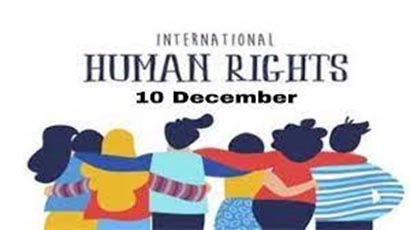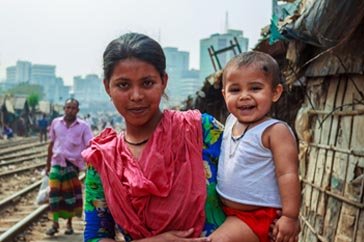International Human Rights Day – Accessing Treatment for Heart Disease in Children is Still a Long Road Ahead
December 7, 2022 | Contributed by Preeti Kumar

While we sit in the comfort of our homes and offices wrapped in the protective know that God forbid, a medical eventuality arises, we will be able to do what it takes to help our loved ones, there is a large section of people struggling to collect the necessary funds to save their loved ones from a debilitating illness, such a s a heart disease in children. One look at platforms such as Ketto or Milaap and you will find parents looking for support for their children, spouses trying to help their partners and children trying to save their parents. Imagine if having the financial means to save your loved one was not an option for you. Imagine if that loved one was your child. Imagine what would go through you to not be able to get the necessary treatment to save your child, only because you did not have the access to the lifesaving treatment.
Imagine.
This continues to remain a harsh reality for many families in India. The Indian healthcare care system is a huge paradox. Where one side we have one of the best hospitals and doctors, on the other hand there consists a huge cross section of society that is struggling to access critical lifesaving treatments only because they cannot afford the same.
According to the World Health Organisation,
“The enjoyment of the highest attainable standard of health is one of the fundamental rights of every human being without distinction of race, religion, political belief, economic or social condition”.
After 75 years of independence this is still a dream for most people in India. The families we interact with and the children we meet, is a rude reminder to how far away we are from this basic right. As a Foundation working for children, we get to meet many such families. When we see parents expressing gratitude to the treating doctor whom they see as no less than a godly figure and then to us for helping them with the financial support to make the treatment for the heart disease in children possible, it is an immensely humbling and grounding experience. Those tears of gratitude that one sees on the faces of the parents really makes you question the very basis of the lives we lead every day, how much we take for granted that it just belongs to us. And yet there are people just struggling to save themselves from a life-threatening illness- not because there is no treatment but because they just cannot access it.
Everyone should have the right to get the healthcare they require, when and where they require it, free from any financial hardship. Access to healthcare should be a fundamental human right. Nobody should suffer a disease-related death solely due to poverty or inability to obtain necessary medical care.
According to a report published in The Times of India, In India, over 75% of the healthcare infrastructure is concentrated in metro cities, where only 27% of the total population resides—the rest 73% of the Indian population lacks access to even basic medical facilities. The primary medical centers are short of doctors. Quality healthcare treatment can be found in the urban areas but often the person from a rural part of the country cannot afford to go to the metro cities for the treatment. Medical Insurance is still a novel concept and in India, it is common for people to be drained of all life’s savings while trying to meet medical emergencies.
AS regards, the treatment of congenital heart disease in children, huge disparities exist between high income countries and low middle income countries. Pediatric heart care centers equipped with the full range of services are not evenly distributed. A family in a rural area, fighting heart disease in children, at first does not have access to the right doctors who can diagnose the illness. On top of that facilities that can offer the appropriate treatment are located in areas which are far away from home. In addition to gather money to save their child they need to face the hardships of finding accommodations, places to eat without spending much to get through the treatment. This is the worst thing to happen to any parent and to any child. To be able to access medial treatment should be a right of every child and family -irrespective of their cast, their race, their financial status.
 Every parent should have the right to access a life saving treatment for their children
Every parent should have the right to access a life saving treatment for their children
This International Day of Human Rights let us vow to do what we can to ensure that access to live saving treatment is not restricted to a privileged few but made available to every family fighting a critical heart disease in children because it is a basic human right. It should be the basic right for evert child to get a lifesaving treatment, it should be the basic right for every parent to save their child from a life threatening illness irrespective of where they live, what they do and how much money they have.
Because Life precedes everything. Because the right to live belongs to each of us.
This International Day of Human Rights #StandUp4HumanRights. As we stand for Dignity, Freedom and Justice for All, let us pledge to ensure that every child with a heart defect gets timey treatment, no matter what.
If you would like to donate a save the life of a child fighting a critical heart defect please write to us at [email protected]. If you would like to volunteer your time and expertise with a Foundation working for children, please contact + 91 9650603438

